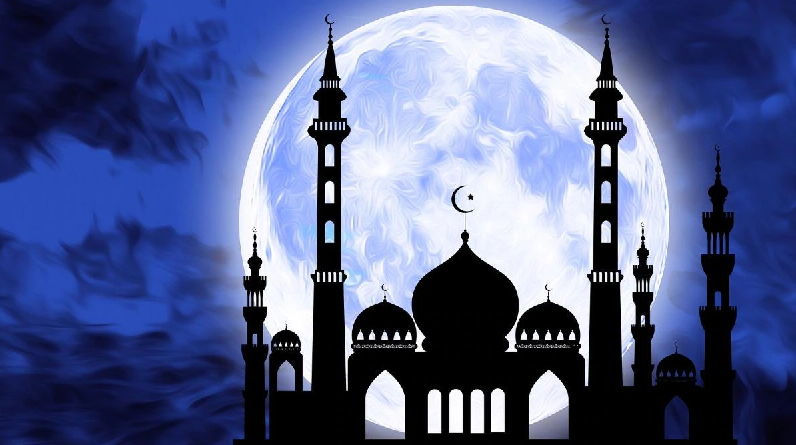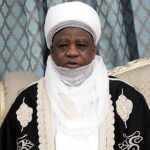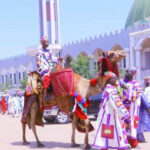Today, Wednesday, June 28, 2023, the 10th day of the Islamic lunar month of Dhul-Hijjah 1444 after hijra, is Eid-el Kabir (or Big Sallah) in the Muslim world, including Nigeria. Muslims annually observe this religious event to commemorate the willingness of Prophet Ibrahim, alayhis-salaam (AS), who saw a vision in which he was divinely commanded by Allah to offer his only son, then, as a sacrifice.
The son, Ismail, consented to the wish of his father as well as to Allah’s command. When Prophet Ibrahim (AS) laid his son prostrate on his forehead in readiness for the sacrifice, the son was ransomed by God with a ram. It thereafter became a rite for Muslims who possess the means to offer animal sacrifices on this day.
It would be recalled that the Sultanate Council under the leadership of His Eminence the Sultan of Sokoto and President General of the Nigeria Supreme Council for Islamic Affairs, Alhaji Muhammad Sa’ad Abubakar III, in a statement issued by the National Moonsighting Committee on Sunday, June 18, 2023, declared Monday, June 19, 2023, as the 1st day of the month of Dhul-Hijjah.
The statement further announced yesterday, Tuesday, June 27, 2023, as Arafat Day and today as Eid-el Kabir Day. The sultan wished Nigerians a peaceful celebration. Arafat is the day when millions of pilgrims converge on the plains of Mount Arafat to mark the climax of the Hajj rites.
Eid: FRSC deploys 549 personnel in Delta
Six things to know about Eid-ul-Adha
The resolve by Prophet Ibrahim (AS) and his son to cheerfully offer to suffer self-sacrifice to obey Allah’s command is the height of patience and submission. Genuine sacrifice as demonstrated by Ismail begins with obedience to divine laws and the commands of those charged with authority in the community.
Obedience to God, parents and constituted authorities is not only an expression of sincere sacrifice but an assured path to achieving it. This is why Islam urges Muslims to pray for their leaders; asking Allah to give them the wisdom and the capacity to entrench good governance. When leaders succeed in their mandate, all citizens are beneficiaries.
Muslims who are able to make animal sacrifices today are encouraged to extend their generous hands of alms to their neighbours and other members of their immediate community, especially the less privileged. The activities that usually characterise this festive period including feasts and exchange of visits should be explored to further unite us as well as inspire us to forgive ourselves of past mistakes.
Given the economic hardship occasioned by the recent termination of the oil subsidy regime, many Muslim households in the country would not find it easy to offer any animal sacrifices today. Survival has become more difficult for many Nigerians since the end of the oil subsidy was announced; a policy that saw a sharp rise in the pump price of petrol from N194/litre to N537/litre in Abuja and other parts of the country.
The prices of public transportation, food items, and consumables have all steeply risen, making the already hard times harder for majority of citizens. More serious is how owners of private vehicles are finding the cost of fueling their cars to and from their workplaces highly prohibitive.
We, thus, plead with leaders at all levels to reduce the hardship faced by majority of Nigerians. They also need to genuinely address the critical challenges of poverty and unemployment.
Indeed, the season is all about sacrifice, but sacrifices should not be exclusive to citizens alone. They should visibly reflect in the burdensome cost of governance, which the country’s leadership, particularly state governors, have recklessly orchestrated on state resources in recent years.
Bad governance is often a consequence of the failure of leaders to make sacrifices. Greed has always remained a huge obstacle to sacrifice. Personal sacrifices made by leaders and those in positions of authority beget credible governance.
Sacrifices by leaders are meant to inspire those they lead to also make patriotic sacrifices, including paying the supreme price that Prophet Ismail (AS) was prepared to make.
As we celebrate this Sallah, we remind Nigerians that sacrifice does not begin or end with submission to the will and command of God. It also entails any sacrifices a man could offer for the development of society, including giving out our time, physical strength or other intangible forms of altruistic contributions that would profit our country. Contributing through selfless service for the benefit of one’s people, community and country is a manifestation of genuine sacrifice. Where greed such as the excessive type common among leaders in Nigeria is a norm, the intent to make sacrifices may never go beyond wishful thinking.
Daily Trust wishes all Nigerians a happy, peaceful Eid-el Kabir celebration!

 Join Daily Trust WhatsApp Community For Quick Access To News and Happenings Around You.
Join Daily Trust WhatsApp Community For Quick Access To News and Happenings Around You.

